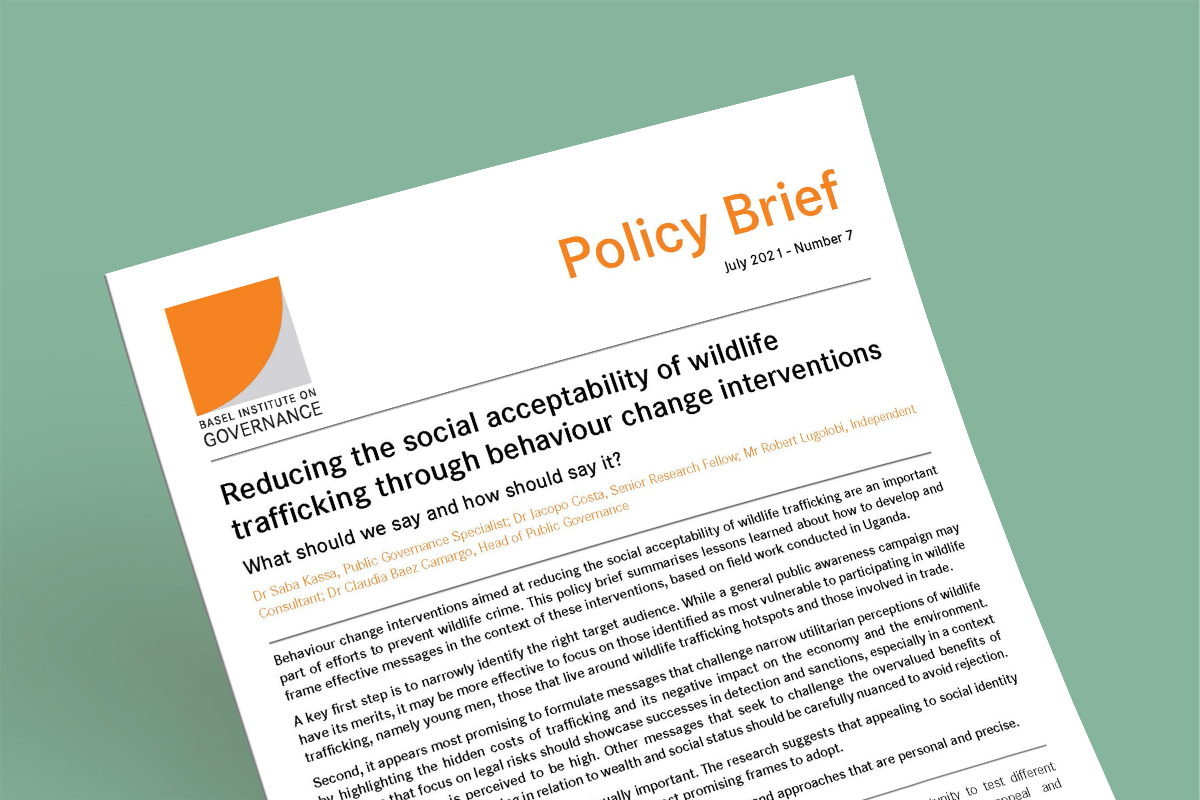New policy brief on how to reduce the social acceptability of wildlife trafficking

Behaviour change interventions aimed at reducing the social acceptability of wildlife trafficking are an important part of efforts to prevent wildlife crime. But how can practitioners craft messages that will be effective in changing attitudes and behaviours?
Our latest policy brief aims to support policymakers and practitioners seeking to improve conservation outcomes through behaviour change interventions.
Based on field work and community engagement in Uganda, it summarises lessons learned about how to develop and frame effective messages in the context of counter-wildlife trafficking interventions. The research was funded by PMI Impact as part of a wider project on stopping corruption from fuelling illegal wildlife trade between East Africa and Southeast Asia.
Audience, content, framing
The findings reveal that a key first step is to narrowly identify the right target audience. While a general public awareness campaign may have its merits, it may be more effective to focus on those identified as most vulnerable to participating in wildlife trafficking, namely young men, those that live around wildlife trafficking hotspots and those involved in trade.
Second, it appears most promising to formulate messages that challenge narrow utilitarian perceptions of wildlife by highlighting the hidden costs of trafficking and its negative impact on the economy and the environment.
Messages that focus on legal risks should showcase successes in detection and sanctions, especially in a context in which impunity is perceived to be high. Other messages that seek to challenge the overvalued benefits of engaging in wildlife trafficking in relation to wealth and social status should be carefully nuanced to avoid rejection.
Third, how we frame such messages is equally important. The research suggests that appealing to social identity and highlighting personal consequences are the most promising frames to adopt.
Overall, practitioners are advised to develop and test messages and approaches that are personal and precise.
Learn more
- Read Policy Brief 7: Reducing the social acceptability of wildlife trafficking through behaviour change interventions.
- Find out more about the work of our Public Governance team on corruption, social norms and behaviours.
- Learn about our Green Corruption programme, which applies anti-corruption approaches to address the causes of environmental degradation.




